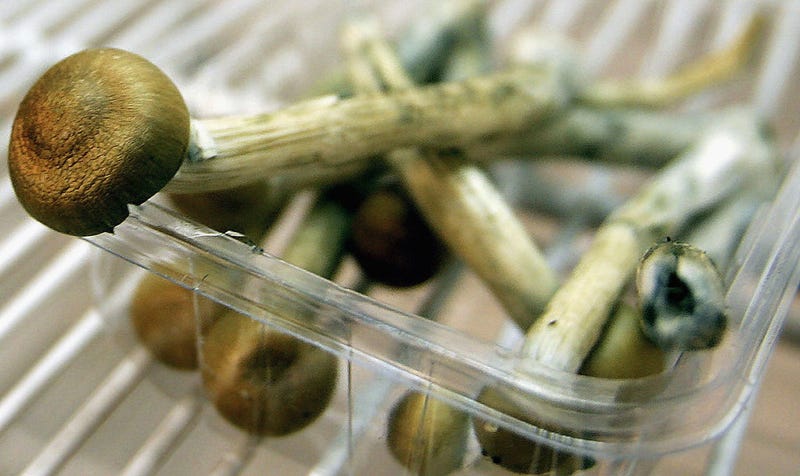
Magic mushrooms may be able to do wonders for people dealing with depression, according to a study published Monday in the Nature journal.
Researchers from UC San Francisco and Imperial College London conducted two trials to learn more about the impact of psilocybin – a hallucinogenic chemical obtained from certain types of mushrooms and commonly called “magic mushrooms” – on brain function. They found that psilocybin treatment was connected with improvements in depression symptoms.
“Across two trials, decreased brain modularity was observed and correlated with improvements in depressive symptomatology,” the researchers explained.
Brain modularity refers to “a theory of the human mind in which the various components of cognition are characterized as independent modules, each with its own specific domain and particular properties,” according to the American Psychological Association.
For the first psilocybin trial researchers conducted, patients with treatment-resistant depression orally took 10 mg and 25mg-doses of psilocybin administered seven days apart. Functional magnetic resonance imaging (fMRI) tests were performed one day after the second dose. It was an open-label trial, so providers and patients are aware of the drug being given.
The second trial was a double-blind phase II randomized controlled trial, so neither health providers nor patients knew what drug was being administered. It compared psilocybin therapy with escitalopram, a selective serotonin reuptake inhibitor.
“Selective serotonin reuptake inhibitors (SSRIs) are the most commonly prescribed antidepressants,” according to the Mayo Clinic.
Patients with major depressive disorder who participated the trial received either two 25 mg doses of oral psilocybin three weeks apart with six weeks of a daily placebo or two 1 mg doses of oral psilocybin three weeks apart along with six weeks of daily 10-20 mg doses of escitalopram. These patients underwent fMRI tests 3 weeks after their second psilocybin dose.
“In both trials, the antidepressant response to psilocybin was rapid, sustained and correlated with decreases in fMRI brain network modularity, implying that psilocybin’s antidepressant action may depend on a global increase in brain network integration,” said the study.
Researchers explained that “a model emerges of abnormally modular spontaneous brain function,” in depression patients and that psilocybin appears to have a positive, “liberating” effect on the brain. They said it is plausible that psilocybin has this effect because it interacts with serotonin receptors called cortical 5-HT2A receptors.
“We surmise that chronic escitalopram does not have the same effect on brain modularity due to its more generalized action on the serotonin system,” and action on other receptors, the study authors said.
“Depression is a major public health problem associated with huge burden and cost,” but “even the best-performing antidepressant drugs show modest efficacy, non-negligible side effects, discontinuation problems and high relapse rates,” they said regarding the purpose of the study.
Richard E. Daws, one of the study authors, tweeted about the findings this week.
In the U.S., 8.4% of all adults had at least one major depressive episode as of 2020. Last year, a Brown University study found that 32.8% of U.S. adults experienced elevated depressive symptoms in 2021 as people throughout the world dealt with the COVID-19 pandemic.
Currently, the U.S. Drug Enforcement Agency lists psilocybin as a Schedule I substance under the Controlled Substances Act, “meaning that it has a high potential for abuse, no currently accepted medical use in treatment in the United States, and a lack of accepted safety for use under medical supervision.”
Complications associated with taking psilocybin include: hallucinations, an inability to discern fantasy from reality, panic reactions, psychotic-like episodes, nausea, vomiting, muscle weakness, and lack of coordination, according to the DEA.
However, authors of the recent study believe the substance has potential as a treatment for depression in a clinical setting.
“Here, we identify a robust, reliable and potentially specific biomarker of response to psilocybin therapy for depression,” they said. “Our results may help to explain why psilocybin therapy holds promise as a new treatment option in psychiatry.”
This study adds to evidence from six other psilocybin therapy clinical trials over the past 15 years, said study authors.


